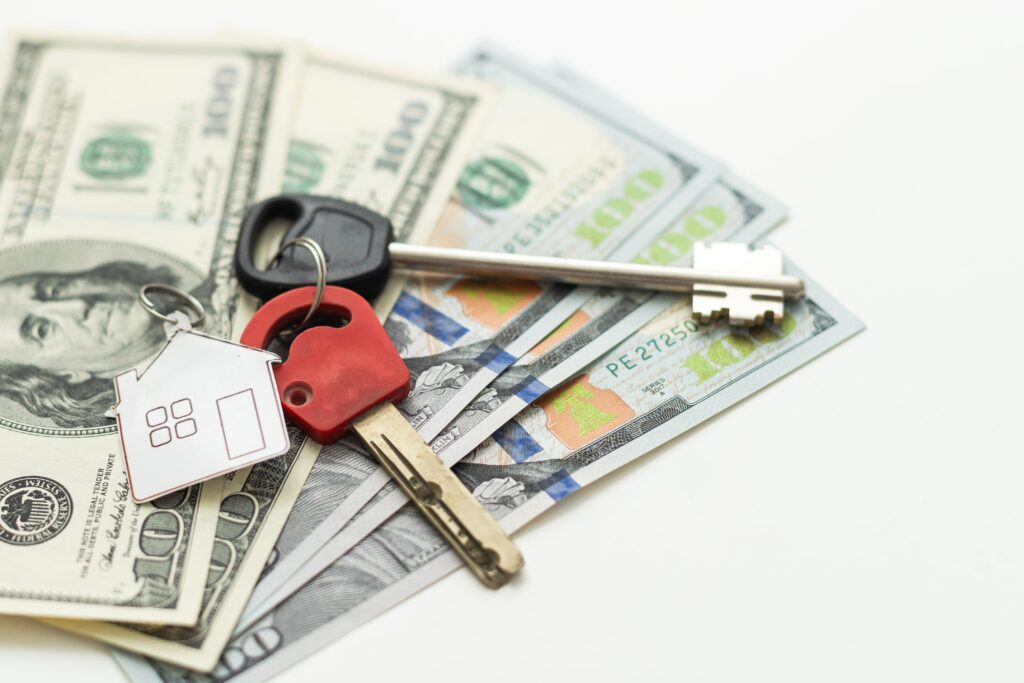In any rental relationship, trust and clarity are key. Landlords want to ensure their property is cared for, while tenants want to know they’ll be treated fairly. That’s where the security deposit comes in. Often misunderstood or mishandled, a security deposit is one of the most important tools in a lease agreement. When used properly, it creates accountability, encourages property care, and protects both parties from financial disputes. More importantly, it provides peace of mind.
Whether you’re a property owner renting out a single-family home in Raleigh or a tenant moving into your first apartment, understanding how security deposits work—and how to handle them responsibly—will make your rental experience smoother, safer, and more transparent.
What is a Security Deposit?
A security deposit is an upfront sum paid by the tenant at the beginning of a lease. It’s not rent. Rather, it’s a safeguard against potential financial losses for the landlord, such as property damage or unpaid rent. If the tenant meets the terms of the lease, maintains the property in good condition, and pays rent on time, the deposit is returned in full at the end of the lease term.
In North Carolina, state law governs how these deposits must be handled. Landlords are required to hold the deposit in a trust account or secure a bond, provide written notice of where the funds are kept, and return the deposit within 30 days of the lease ending (or provide an itemized list of deductions if applicable). These laws are in place to protect both the tenant’s money and the landlord’s property.
Why Landlords Should Take Security Deposits Seriously
For landlords, the security deposit is more than just financial protection—it’s a way to set expectations and reinforce professionalism from the very beginning. A clearly outlined deposit policy helps prevent misunderstandings, ensures accountability, and often motivates tenants to care for the property more diligently.
But this protection only works if landlords treat the deposit according to state regulations and documented best practices. At Oak City Properties, we advise our clients to conduct thorough move-in and move-out inspections, photograph every room, and provide written condition reports. This not only protects the landlord legally but also builds trust with the tenant by making the entire process transparent.
We also remind landlords that “normal wear and tear” is not the same as “damage.” Small scuffs on the wall or worn carpet in high-traffic areas are to be expected. But broken appliances, stained flooring, or holes in the walls go beyond everyday use. Having a clear lease that spells out these differences helps avoid conflict later.
What Tenants Need to Know
From the tenant’s point of view, a security deposit is both a responsibility and a reassurance. It demonstrates a willingness to take care of the property and signals that you’re committed to a respectful rental relationship. When tenants understand how the deposit will be handled and what’s required to receive a full refund, they’re empowered to take proper care of the space and communicate more effectively with their landlord.
One of the smartest things a tenant can do is to document the property’s condition at move-in. Taking photos of each room, noting any existing issues, and requesting a copy of the landlord’s inspection report can prevent unfair charges down the road. Throughout the lease, keeping the property clean, reporting maintenance issues promptly, and following the terms of the agreement are all key to ensuring the deposit is returned.
When moving out, it’s essential to leave the property in as close to original condition as possible. Cleaning thoroughly, patching small holes, and being present for the move-out inspection all help ensure a smooth process. If deductions are made, North Carolina law requires that the landlord provide a written explanation along with any remaining balance within 30 days.
Avoiding Disputes with Communication and Documentation
Security deposit disagreements are among the most common disputes in landlord-tenant relationships. Fortunately, they’re also the most preventable. Clear communication, consistent documentation, and a mutual understanding of expectations are the foundation of a successful resolution.
Landlords should avoid vague language in the lease and always provide receipts or photos when deductions are necessary. Tenants should stay informed, ask questions, and keep their own records. When both sides act in good faith and follow the law, deposit returns can be a straightforward and even positive experience.
The Bigger Picture: Building Trust Through Transparency
Ultimately, a security deposit is about more than money. It’s a demonstration of mutual respect and a shared commitment to upholding responsibilities. For landlords, it’s about protecting your investment while setting professional standards. For tenants, it’s about knowing your rights and doing your part to care for the place you call home.
At Oak City Properties, we take the stress out of managing security deposits by offering guidance, documentation, and hands-on support. Whether you’re a landlord navigating local laws or a tenant preparing to move in or out, our team ensures every step of the process is handled legally, fairly, and with your peace of mind in mind.
Don’t DIY. Let’s Do This Right
If you’re ready to stop worrying about repairs, rent, and regulations, it’s time to make the switch. Contact Oak City Properties today to learn how we can help manage your rental with care, professionalism, and results.
Oak City Properties is Here to Help
At Oak City Properties, we’re here to support your real estate journey, whether you’re a seasoned flipper or just starting. We provide custom solutions and competitive quotes that tailor our services to what you really need. Our full property management service will work with you each step of the way when renting and maintaining your property. We believe hiring a property management company should be a transparent process built on trust and doing our absolute best to take care of your investment.
Want to learn more about our commitment to effective real estate investing and property management? Contact us today via the form below or call (919) 232-9222.

